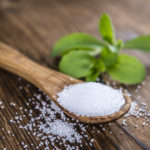By David Blyweiss, M.D.
Typically, allergy season is history by now. Not this year. Thanks to the torrents of rain that hit many parts of the country last winter, pollen counts are still extremely high. So I’m not surprised when patients come to my office looking for relief.
Pollen can trigger inflammation of the mucous membranes in the nose. This inflammation can lead to that runny nose, sneezing, stuffiness and itchy, watery eyes. While these symptoms aren’t life threatening, they can certainly make you miserable. Unfortunately, the best the pharmaceutical industry can offer are drugs like antihistamines and decongestants that dry you out, irritate your nasal passages and make you drowsy. What’s more, these medications often fail to fully control your symptoms. Fortunately, you don’t have to rely on these drugs that simply trade one set of symptoms for another. There are safer, more effective ways to relieve your allergy symptoms.
Open your arteries, improve blood flow for a new health miracle...
Did you know your circulatory system has over 60,000 miles of arteries, veins and other blood vessels, if stretched end to end?
But as you age, your blood vessels undergo changes, which may cause them to stiffen, thicken and get clogged.
GOOD NEWS! Doctors have now identified a “Miracle Molecule” inside your arteries that helps OPEN your arteries and IMPROVE blood flow.
It’s what Dr. Valentin Fuster calls it, "One of the most important discoveries in the history of cardiovascular medicine."To you, that means...
- Healthy blood pressure
- Sharper mind and memory
- Skyrocketing energy and muscular strength
- Increased pleasure and passion in the bedroom
- Improved circulation to every cell and organ in your body
Go here to discover a new natural way to significantly boost the levels of this miracle molecule in YOUR body NOW!
The first step toward natural allergy relief is to figure out how to reduce your exposure to seasonal allergens. Check the daily pollen counts in your local newspaper, online or on the news. On high-count days, limit your time outside and keep the windows closed. To determine the specific plants to which you’re allergic, have your doctor test you for a variety of pollens.
The World's Quickest Solution for Ending Prostate and Urinary Misery
This has recently been revealed to be one of the only real breakthroughs in prostate health.
The seeds of a strange fruit (sometimes called "Chinese Apples") hold powerful phytonutrients that are a revolution in prostate health.
In fact, UCLA and Veterans Administration research have now proved this to be true.
Not only that, but it may be the worlds quickest solution for ending prostate misery.
Simply stated, these phytonutrients represent a huge step beyond beta sitosterol, saw palmetto, and other phytosterols alone.
Simply click HERE if you want to have fast prostate relief...restful, uninterrupted sleep...no more constant "urges to go"...enhanced virility...and optimal prostate support for life.
To control microscopic pollen that makes its way into your home, dust and vacuum the house twice a week. If needed, wear a mask and gloves to limit exposure while you are cleaning. Don’t use fans, which can stir up dust, and get your air ducts cleaned once a year. If you live in a warm environment, use your air conditioner sparingly or put cheesecloth over the vents. If you can’t afford a whole house HEPA filtration system, stand alone units are within the range of most people and can be placed in the bedroom to ensure a safe zone while you sleep.
Even with these steps, you may still suffer from symptoms. Fortunately, a variety of remedies can alleviate allergies. Irrigating your nasal passages with saline water from a Neti pot each day can clear your nasal passages and reduce the need for medication. Using a neti pot thins mucus to help flush it out of the nasal passages. For best results, mix about 16 ounces of lukewarm water with 1 teaspoon of salt. Once you’ve filled the Neti pot, tilt your head over the sink at about a 45-degree angle. Place the spout into your top nostril, and gently pour the saline solution into that nostril. The fluid will flow through your nasal cavity and into the other nostril. It may also run into your throat. If this occurs, just spit it out. Blow your nose to get rid of any remaining liquid, then refill the Neti pot and repeat the process on the other side.
There are also several supplements that can offer fast relief. My favorite is stinging nettles, especially for a sudden fit of sneezing or for itchy eyes. This herb can put a stop to these allergy symptoms, often within 15 minutes. Stinging nettle extracts are most potent in freeze-dried form. Take 870 mg. as needed when symptoms flare.
Quercetin, a flavonoid found in yellow onions, garlic, citrus fruit and buckwheat, also helps prevent allergies by stemming the production of histamine from over reactive immune cells. Starting six weeks before allergy season, take 400 mg. of quercetin extract twice a day, between meals, and continue through the season.
Finally, I recommend butterbur. Studies show that this herb is an anti-inflammatory that can reduce allergy symptoms just as effectively as antihistamine drugs—but without the drowsiness. The secret to butterbur’s effectiveness? A group of bitter-tasting compounds called petasins that relax blood vessels and various smooth muscles in the body. Look for a butterbur supplement that is standardized to contain 7.5 mg of petasine per capsule and take 50 to 100 mg. twice a day with meals during allergy season. Just make sure to choose a product free of pyrrolizidine alkaloids. Pyrrolizidine alkaloids can damage the liver so check the label before you buy.
Although having a hardy immune system is essential for fighting allergies on a long-term basis, these strategies not only bring fast relief, but may even help prevent attacks. Who knows, you may even find that you enjoy spring once again!
References:
Kawai M. Effect of enzymatically modified isoquercitrin, a flavonoid, on symptoms of Japanese cedar pollinosis: a randomized double-blind placebo-controlled trial. International Archive of Allergy and Immunology. 2009;149:359-368.
Roschek B Jr. Nettle extract (Urtica dioica) affects key receptors and enzymes associated with allergic rhinitis. Phytotherapy Research. 2009;23(7):920-926.
Thomet OA. Anti-inflammatory activity of an extract of Petasites hybridus in allergic rhinitis. International Immunopharmacology. 2002;2:997–1006.






